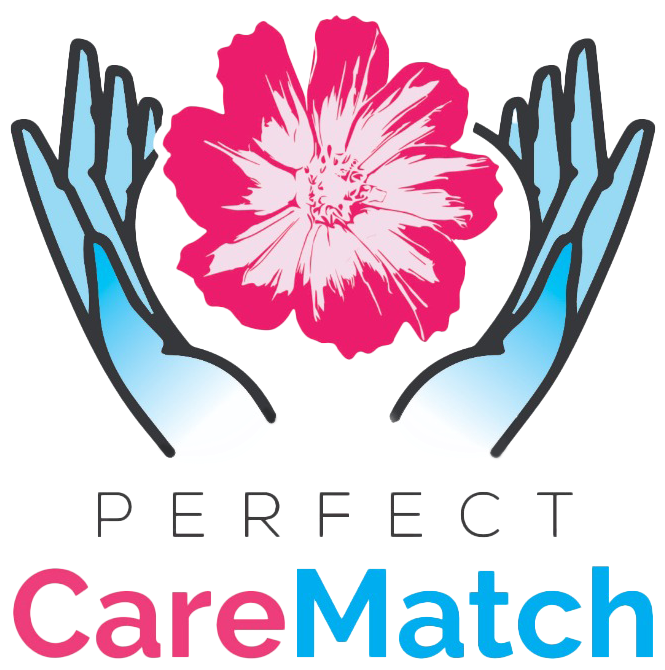Having a Personal Assistant Professional Long-Term Caregiver for seniors who wish to remain safely in their homes offers numerous advantages over receiving care in a facility. One key benefit is the personalized and consistent care they can provide, tailored to the specific needs and preferences of the senior, in the comfort and familiarity of home.
As the Baby Boomer generation ages, the older adult population aged 65 and over continues to expand exponentially. With this, there is a rapidly increasing need for care assistance to enable seniors to fulfill their dreams of remaining at home and aging in place. Aging in place requires careful planning for seniors and their families, including decisions about obtaining the necessary help in the home and in-home health care, with safety, mobility, and support for daily living activities (ADLs) in mind. In particular, these activities include things like bathing, eating, dressing, using the toilet, and moving from a bed to a chair, among others.
Having a personal assistant can be an ideal solution for individuals who do not require significant medical care or other forms of caregiving support but could benefit from assistance with activities of daily living (ADLs) and other tasks. This type of support can significantly enhance the quality of life, helping older adults maintain independence and autonomy, a sense of purpose, and an overall healthier and more fulfilling lifestyle.
Personal Assistant Caregivers Provide Daily Living Support
Personal assistants support and assist with various tasks, including scheduling, correspondence handling, errand running, and daily activities. This allows individuals and their families to focus on their interests and passions without the added stress of these responsibilities. They can also assist with critical health-supporting activities, such as grocery shopping, preparing healthy meals, and providing transportation to and accompanying individuals to medical appointments and social and enjoyment opportunities.
Regarding the emotional and social aspects of health, well-being, and quality of life, having a personal assistant, long-term caregiver can also provide meaningful and authentic companionship. When genuine relationships are lacking, individuals can experience loneliness even when they have social contact. Meaningful relationships, social interactions, and bonds that enhance the quality of life, enjoyment, and overall well-being are developed when people share common interests, likes, preferences, and trust. These factors form the basis of authenticity and companionship that positively impact people of all ages, particularly older adults and seniors, who may be more prone to experiencing loneliness, lack of engagement, and social isolation due to a range of circumstances or health-related challenges.
Compassionate Companionship
Personal long-term private duty caregivers also ensure that seniors feel valued and heard by offering empathetic and attentive care to individuals. Having a single, dedicated caregiver fosters authentic companionship through which positive lifestyles and relationships can flourish, promoting mental and emotional well-being. Long-term caregivers often become trusted friends who engage in heartfelt conversations and shared activities. This social interaction is crucial, especially for seniors who may otherwise face loneliness and social isolation.
Having a long-term professional caregiver can also be vital in helping seniors remain socially engaged and connected with family and friends and enjoy enjoyable activities. In addition to developing strong and informed bonds with clients regarding their preferences and activities, personal, private-duty caregivers can provide transportation to and help encourage connectivity with others, such as at community sites or gatherings with family and friends.
Smooth Transitions to Increased Support Needs
A professional caregiver’s familiarity with the senior’s needs and preferences can help navigate the complexities of increasing care requirements, making the process smooth and reassuring, while enabling them to remain safely in the comfort of their homes. The long-term, trusted nature of the long-term caregiver role significantly reduces anxiety, stress, and upset that can occur in cases when the need for additional caregiving support may be required. This trust is essential as it promotes a sense of security and comfort for seniors, ensuring they feel valued and understood during such transitions.
Long-term caregivers can play a key role in enabling seniors to continue living in the familiar surroundings of their homes during these transitions. Receiving care from consistent caregivers can reduce symptoms such as stress and anxiety and support patients’ overall physical and emotional well-being, mental health, and quality of life.
Avoiding Risks: Reducing Hospitalizations and ER Visits
In addition to promoting emotional well-being and overall mental health, home care services can enhance health outcomes for seniors. Studies have shown that seniors who receive care at home are generally healthier and experience fewer hospitalizations than those in institutional settings. In-home caregivers can also encourage healthy habits, such as ensuring proper nutrition, regular physical activity, and promoting overall well-being. Families can feel confident knowing their loved ones receive the attentive care they need to thrive in their golden years. Having a caregiver present enhances safety by assisting with daily tasks, mobility, and activities, reducing the risk of accidents, falls, or other injuries.
They also support health and minimize risk by providing medication reminders and promoting and encouraging physical therapy (PT)/occupational therapy (OT) exercises, general physical activity, and movement. Such activity supports muscular fitness, including balance and coordination, as well as emotional and cognitive health.
The presence of a dedicated caregiver enabling seniors to remain in the familiar setting of home can reduce exposure to the risk of certain infections and exposure to disruptive behaviors from other patients that can be present in assisted living, skilled care and nursing facilities Behaviors which can commonly occur among patients in such settings, noise levels and the disruption of transitions can lead to and exacerbate feelings of fear, anxiety, and confusion among seniors and those suffering from Alzheimer’s and other forms of dementia.
Cost-Effective Dedicated Care
Home care also allows for more personalized attention than what can typically be provided in a nursing home or assisted living facility, and can be a more cost-effective option. In a home care setting, caregivers can focus entirely on one senior at a time, ensuring they receive the attention and care they need. This one-on-one interaction fosters a deeper relationship between the caregiver and the individual, enhancing emotional support and companionship.
A single live-in caregiver for longer-term assignments maximizes continuity of care and consistency for all involved. Families can feel reassured knowing that their loved ones are not just being monitored but are engaged in meaningful conversations and activities that enrich their lives.
While nursing homes and assisted living facilities often come with high monthly fees and additional costs, home care services can be customized to fit various budgets. Families can choose the type and frequency of care that best suits their needs to manage expenses more effectively. This flexibility makes home care a viable option for many families, ensuring that seniors receive the care they require without unnecessary financial strain.
Holistic Health and Wellness Support for Seniors and Their Families
Receiving care at home allows patients to stay connected with loved ones and benefit from the companionship of dedicated care staff. It also enables them to receive comprehensive, holistic care that addresses their physical, emotional, and social well-being. Maintaining social engagement with family and friends helps seniors feel connected, valued, and engaged, enhancing their well-being and quality of life. Holistic home care addresses the needs of the whole person: body, mind, and spirit. This involves incorporating physical activity, mentally stimulating interactions, ensuring proper nutrition, and creating a safe and comfortable patient environment.
Experts indicate that in-home caregiver support is increasingly considered an essential component of the long-term services and supports (LTSS) system.[1] A personal, professional, long-term caregiver can be a critical component for family caregivers in ensuring necessary respite services to support their holistic personal health and well-being.
Data shows that 41% of adult family caregivers will become increasingly frail while caring for their loved one due to neglecting their health and well-being. Ensuring adequate break time and seeking out resources for family caregiver wellness and support are vital. Hiring a long-term professional caregiver can ensure respite relief, support self-care, and prevent burnout for family caregivers.
According to Caregiver Respite: An Essential Component of Home & Community-Based Long-Term Care, “when provided consistently and in sufficient doses, respite is associated with positive outcomes for both patient and caregiver (e.g., reduced hospitalization, delayed institutionalization, reduced caregiver burden)” [2] as cited in Exploring the Benefits of Respite Services to Family Caregivers: Methodological Issues and Current Findings.[3]
Home care services offer a range of benefits for seniors, enhancing their quality of life while providing peace of mind to their families. One of the most significant advantages is receiving personalized care in a familiar environment. Familiarity with their surroundings can significantly reduce anxiety and promote a sense of comfort for seniors. They can maintain their routines, enjoy their favorite activities, and interact with their cherished belongings, all contributing to their emotional well-being. This personalized approach enables caregivers to tailor their services to meet the individual’s specific needs and preferences, fostering a more effective and compassionate caregiving experience.
PCMatch Personal Assistant Professional Caregiver option provides expert and safe assistance with daily living and care, promoting optimal health and quality of life.
Our caregivers are experienced home health aides (HHAs) and certified nursing assistants (CNAs). Having a single, live-in, expert caregiver for longer-term assignments offers optimal continuity of care for clients and their families. At PCMatch, our mission is to provide the best, holistic care to enable seniors to live their healthiest and best lives safely and affordably in their homes.
Contact us to learn more about our exclusive Assisted Live-IN Home Care Program including our Personal Long-term Professional Caregiver option and our person-centered, holistic care plans, which include authentic companionship for your loved one.
References
[1]. Utz RL. Caregiver Respite: An Essential Component of Home- and Community-Based Long-Term Care. J Am Med Dir Assoc. 2022 Feb;23(2):320-321. doi: 10.1016/j.jamda.2021.12.020. Epub 2021 Dec 28. PMID: 34971592; PMCID: PMC9052870.
[2] Ibid.
[3] Zarit SH, Bangerter LR, Liu Y, Rovine MJ. Exploring the benefits of respite services to family caregivers: methodological issues and current findings. Aging Ment Health. Mar 2017;21(3):224–231. doi: 10.1080/13607863.2015.1128881 [DOI] [PMC free article] [PubMed] [Google Scholar]
Home Healthcare Assistance: Helping Patients With Daily Activities And Tasks – Home Healthcare. https://careinfopassionhub.info/home-healthcare-assistance-helping-patients-with-daily-activities-and-tasks/
Homemaking Solutions for Aging Parents. https://www.amanihcs.com/homemaking-solutions-for-aging-parents

